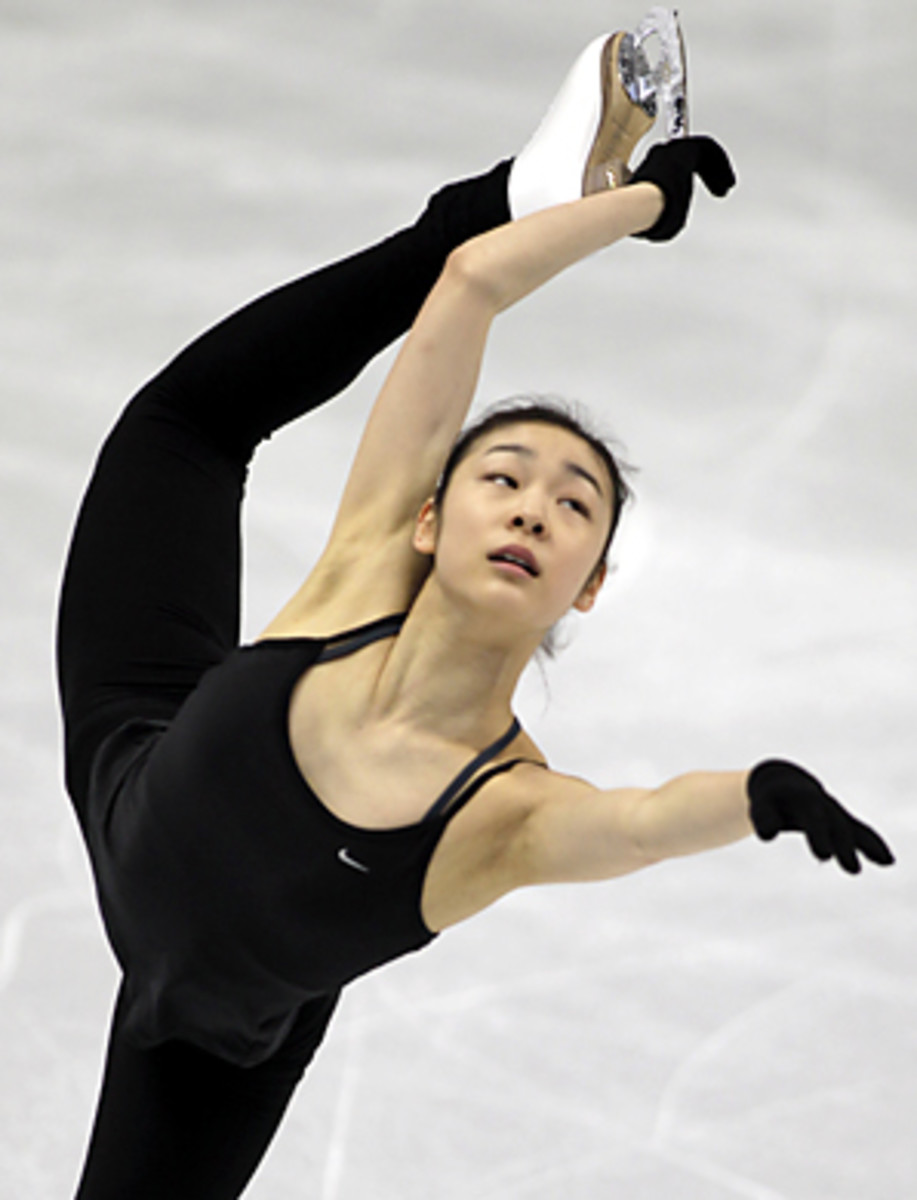Asian contingent could shut out U.S. in ladies' singles


VANCOUVER, British Columbia -- Question: Will American audiences tune in to a ladies figure skating competition in which an American is not in the hunt for the gold medal? Maybe not even make an appearance on the podium? It hasn't happened since 1964, but we may find out in the next few days, for this Olympic gold will be decided between a couple of longtime Asian rivals: South Korea and Japan.
But if you appreciate great skating, don't let that put you off. Kim Yu-Na, the 19-year-old Korean favorite is, at her best, the best female skater I've ever seen. I don't say that lightly, but Kim is the complete package: elegant, athletic, fast, beautiful, charismatic. Her programs are wonderfully choreographed. She has all the jumps, except the rare (for women) triple axel. Her spins are weightless. But the 2009 World Champion will have to win here before I put her above the likes of past Olympic champions Kristi Yamaguchi and Katarina Witt. She'll have to prove she can withstand the suffocating Olympic pressure.
It will be difficult, because Kim, winner of 9 of her last 11 starts dating back to 2008, is an idol in Korea, by far the country's most famous athlete. The entire nation will be watching her, hoping she will crush the two Japanese skaters that are expected to be her fiercest competition, 19-year-old MaoAsada and 22-year-old MikiAndo. There is still bad blood between the two countries left over from the Japanese occupation of Korea during World War II, so this event has cultural implications way beyond the typical Olympic rivalry. Kim feels the weight of those expectations, and there is no greater enemy to great skating than tension. Keeping herself calm will be a huge challenge. "She knows there's pressure," Kim's coach, BrianOrser, said today after her practice. "Her countrymen want her to do well. But she's doing this for the right reasons. She loves skating, and she loves to compete."
As for the two Japanese ladies, they have the luxury of being underdogs, and in Asada's case, a very dangerous underdog. Asada is the only woman in the world now landing the triple axel with consistency, and she has one planned in her short program, plus two more in her free skate. She landed all four that she attempted Monday in practice with ease. The problem is that she puts her triple axel at the front end of her combination jump, then only tacks on a simple double toe loop. Base value of those two jumps: 9.5 points. The base value of Kim's most difficult combination, a triple Lutz-triple toe loop? 10.00. Advantage: Kim. If Asada cannot tack a triple toe loop onto her triple axel, which it appears she cannot, then her only hope to beat the Korean is if Kim implodes from the pressure.
It's more likely that will happen to the inconsistent Asada, who was 2008 World Champion but finished fourth in that event in 2009. She got off to a terrible start this season and failed to qualify for the Grand Prix finals, which Kim won. As for Miki Ando, the 2007 World Champion and third place finisher in the Worlds in '09, she'll be waiting on the sidelines in case both favorites crash and burn. Why not? It happened in 2006 for her countrywoman, Shizuka Arakawa.
Other potential medalists -- bronze medalists, that is -- include both American ladies, 17-year-old RachaelFlatt and 16-year-old MiraiNagasu. Flatt almost never misses a jump: she will be top seven for sure. Nagasu is less predictable. Virtually unknown to international judges, she is skating beautifully now, following her strong second-place finish at the recent U.S. Nationals, and her coach, FrankCarroll, is on a hot streak, having guided EvanLysacek to a gold medal. She could finish anywhere from 3rd to 15th.
Finally, there is Canada's JoannieRochette, who finished second last year in the world championships and fifth in Torino in 2006. How Rochette will hold up, heaven knows. On Sunday she learned her mother, Therese, who was 55, died suddenly after arriving in Vancouver to watch her compete, apparently of a heart attack. It is almost unimaginable what must be going through the six-time Canadian champion's mind. Rochette has not skated particularly well this year, and to carry such a loss into the Olympics in a sport that requires the precision and control of figure skating ... well, God bless her if she can do it. Certainly it will be an emotionally wrenching moment when she takes the ice Tuesday night and gets the ovation she will get. If she can pull it off, it will be one of those unforgettable moments that makes the Olympics larger than any of us. I hope she can.
• Gold: Kim Yun-Na, Korea• Silver: Mao Asada, Japan• Bronze: Mirai Nagasu, U.S.
